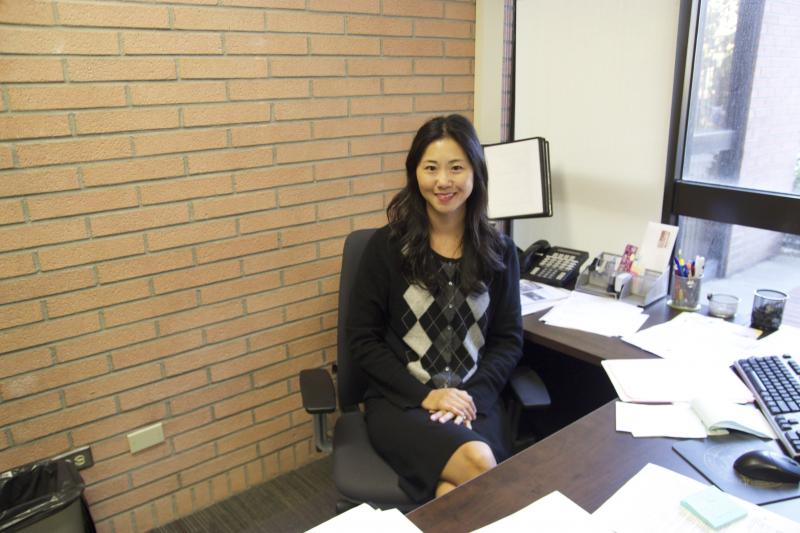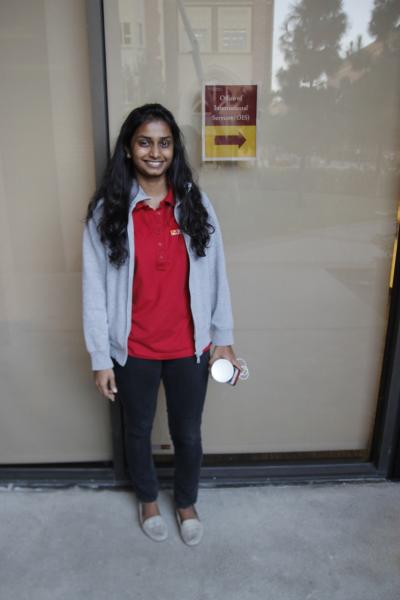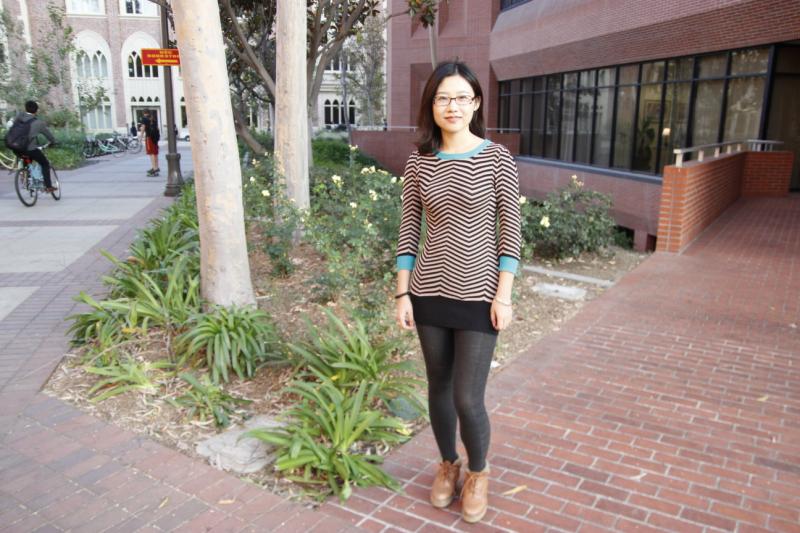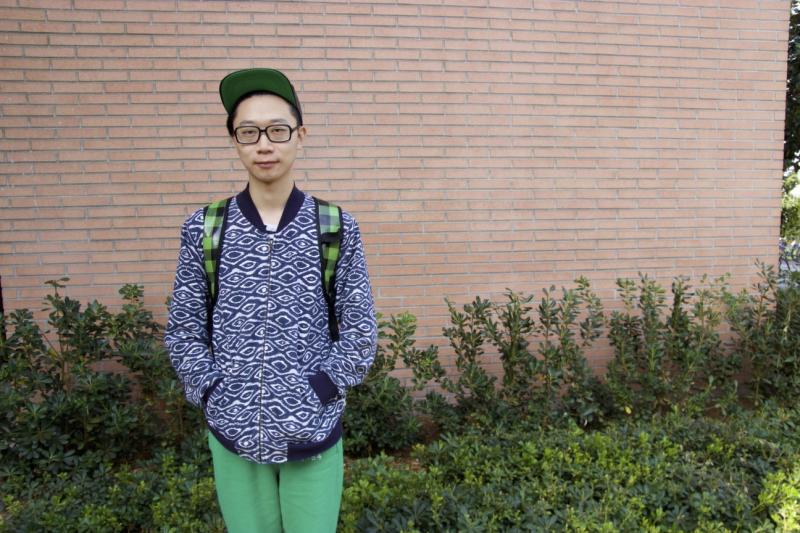Where Do International Students Go After They Graduate?

There are about 10,000 international students from 115 different countries and 1,000 international scholars here to do research or teach, according to Esther Lee, associate director of the Office of International Services at USC. These individuals are in various stages of their educational careers at the university, but where do they go after they graduate?
“All international students are eligible to apply for work authorization for one year upon graduation,” says Lee. “This is called OPT: Optional Practical Training. They apply through our office and are approved by the U.S. Citizen and Immigration Services to work for that one year in their field of study. Usually, almost 99.9% get approved and go on OPT.”
Students who are in the STEM fields—science, technology, engineering and math—are eligible for a 17-month extension of their work authorization. So individuals in the STEM field are qualified to work up to 29 months in the U.S. after graduation. Again, they are obligated to work in their field of study and the job they apply to must require their degree.
“They have to meet immigration regulations, so they have to maintain status inside the U.S. for their whole academic career here at USC,” explains Lee. “Depending on whether they apply for STEM, there are U.S. Citizenship and Immigration Services requirements for the companies. There are job requirements they have to pass to be eligible for the STEM extension.”

SEE ALSO: International Students React To Apparent Lapses In Safety
“Since I’m in the engineering department, we get another 17 month extension to work,” she explains. “So yeah, I’ll work for 29 months and then maybe get a green card afterward. But first, [I need] the H-1B if my company sponsors me. You get a three to six year permit if you get the H-1B. After that, we can apply for a green card."
Depending on how well these students perform at work, companies can sponsor them for something called a H-1B Visa, as Venugopal mentions, which is offered to a select few: about 55,000-85,000 applicants out of 150,000 applicants in the entire country, according to Lee. The 55,000 applies to a quota that is open to all bachelors, masters and doctorate degree-holding students. The extra 20,000 is set aside for masters and PhD students only.
Venugopal hopes to be one of these students who gets a H-1B Visa, seeing the appeal in staying in the U.S.
“I’m mastering in computer network, so I want to get a job in any of the networking companies. I will go up the ladder in the field,” she says. “The money is good [here]. There are a lot of good networking companies here, which I’ve always wanted to work in. My basic aim was to come study here to get an experience of how studying in the U.S. is.”
She claims to have chosen USC because it is a reputable university for computer science. Venugopal also believes that California is the ideal place to study computer science because of the proximity to Silicon Valley, home to huge tech companies such as Apple.
While other international students choose the university for similar reasons, Lee says that international students are at a disadvantage in some ways when it comes to securing jobs.
“Unlike a U.S. citizen or domestic student, the company has to hire them [in order for them to stay]. If the company really thought the person had potential, they would have to sponsor them for the H-1B, which requires processing time and things like that,” she explains.
“Sometimes at the career fairs, companies don’t open up their booths for international students because of the immigration requirements a company would have to go through. In that sense, [it can be tougher], but it really hasn’t hindered our students from applying for OPT and even getting jobs.”

“I will stay here doing the OPT but it’s very difficult to find a job with a sponsor as an international student. If there’s no job available or I cannot have the status to stay here, I will go back to China,” she says.
Yang wants to be an English teacher and is part of TESOL: Teaching English to Speakers of Other Languages. This will prepare her to be an English teaching specialist in a variety of settings and educational levels.
SEE ALSO: Six Schools With The Most International Students In The US
“[For OPT] I’m thinking about a community college to teach adults. If I don’t get a job, maybe I can teach in the learning center in a private school,” she explains. She wants to stay in the U.S., but recognizes that it’s not easy.
“You need a sponsor [so that’s a challenge]. We are not native speakers and, for teachers, they prefer to have native speakers because you must be very fluent in English because you need to teach the children.”
Some of Yang’s classmates have already gotten jobs but are not being sponsored by their companies for H-1B Visas. Yang explains that she was a teacher in China before she applied to this program at USC. If she cannot get a sponsorship, she will consider moving back to her native country to continue her previous teaching job.
“[Some students] will go back home and work in their country of origin. Others will come back to the U.S. or [go to] other countries to pursue higher degrees,” says Lee. “It depends upon a student’s field of study—what’s really out there for the individual to apply for.”
Despite some of these challenges, Lee says that USC’s reputation continues to draw international students in. The university is known for its strong research and academics as well as networking opportunities. Furthermore, because of its large existing international student population, incoming Trojans from all over the world can find people from their native countries who can help them acclimate.

Hailing from Southwest China, he wants to try out working in Los Angeles after he graduates to see if it’s for him.
“I want to try it out. I don’t know [if I want to stay here long-term]. If you’re not born here, it’s still a foreign land. You are not so sure if you want to spend your whole life here,” he says. “I do prefer to stay here for now. There is more freedom and the weather is nice here.”
He wants to see if he feels comfortable working in the U.S. before committing.
“I need to just work to see if my personality fits into this society, because I don’t even know that. The Chinese students like to stay together here, so even though I’ve been here for two years, I’m still kind of limited in a smaller community. If you go to work, it’s a different thing.”
He is also concerned about the job market for his field. Some of his friends graduated this year and have had a difficult time securing employment.
“You know, [being an] international student is not only about finding a job but you also need someone to offer you the work visa, so that’s much harder,” he says. “Another thing is, the market is kind of like in China. Even if you work here, there are a lot of programming actually in China, so you are here working for Chinese.”
Despite these factors, Li plans to do the OPT but is unsure of where he will ultimately end up.
Lee says that no matter where students go upon graduation, USC is a desirable place for international students to get their education.
“The programs that they apply for are good, prestigious programs. Also, who doesn’t want to be in L.A., right?” she says. “The weather’s nice and there’s so much our international students can get here in L.A. compared to other places. [Some advantages] include the diversity and the different communities that our students can plug into.”
Students can learn more about OPT and STEM here.
Contact Web Producer Belinda Cai here and follow her on Twitter here.



